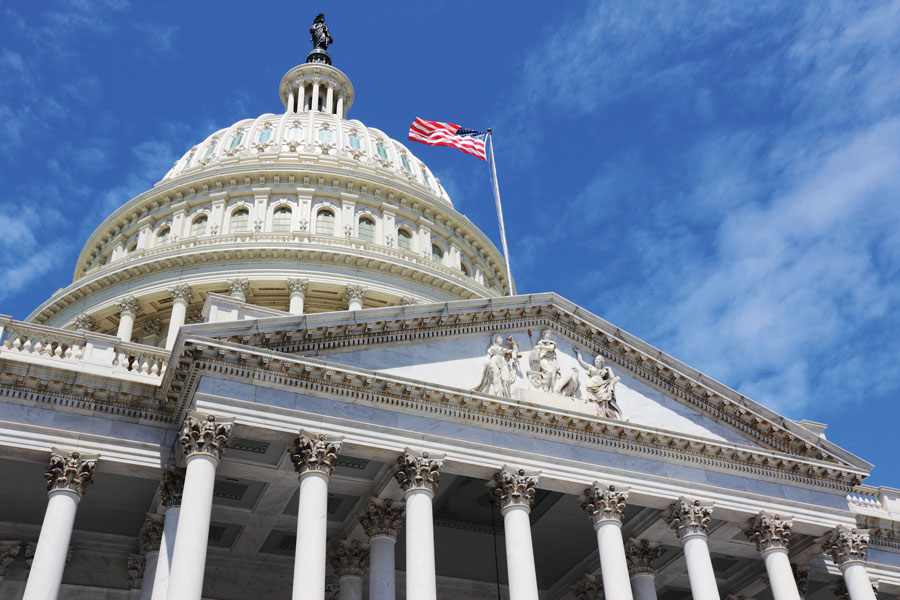Congress is considering legislation that could ensure dignified retirements for millions more Americans.
The House of Representatives recently passed the Setting Every Community Up for Retirement Enhancement Act, which builds on the best elements of today's workplace retirement savings plans while extending their benefit to millions more workers and their families.
However, the bill is currently stalled in the Senate. The Senate should pass, and President Donald J. Trump should sign, one of the most broadly beneficial pieces of legislation in a generation.
The SECURE Act would continue a decades-long march toward greater retirement security. Retirement savings plans such as 401(k)s, 403(b)s and individual retirement accounts have helped Americans prepare for dignity in their golden years, often with the support of their employers.
The Pension Protection Act of 2006 turbocharged retirement savings by endorsing
innovations such as employers automatically enrolling workers in retirement plans, automatically escalating savings levels over time and automatically investing in retirement-focused vehicles such as target-date funds.
Since the PPA became law, American workers have deepened their engagement with retirement savings, and our defined-contribution savings system has accumulated $17 trillion — the largest pool of investment capital on earth. And every dime of this wealth has been saved and invested — one paycheck at a time — by American workers and their employers.
The American system of workplace retirement savings plans is being replicated around the world in recognition of its effectiveness both in securing retirement finances and in generating investment funds to fuel national economies.
However, our retirement savings system is an unfinished masterpiece. Millions of Americans still lack access to such plans. Moreover, while workplace savings plans have proven an excellent mechanism for accumulating retirement savings, they take workers "to" (rather than "through") retirement, stopping decades short of providing sufficient income throughout retirement.
This is because today's retirement plans have three shortcomings: coverage shortfalls that have left roughly half of workers without retirement plans; outdated rules governing savings limits and time frames; and a failure to accommodate strategies for converting savings into lifetime income.
The SECURE Act would address these deficiencies through features that have been broadly endorsed by retirement advocates, the financial industry, academia, employers and grassroots consumer groups. The SECURE Act would:
• Expand 401(k) coverage by allowing for open multiple employer plans covering many more companies, including some that today find themselves too small to afford good retirement plans. It also would provide expanded start-up business credits and establish a new tax credit for companies that help workers save automatically.
• Address increased lifespans by helping Americans preserve their savings longer. It would increase the age at which workers have to begin withdrawing money from retirement plans to 72, allow them to contribute to individual retirement accounts beyond the current age limit of 70½, and allow long-term, part-time employees to participate in savings plans.
• Usher in a new era of retirement security by providing for the conversion of workplace savings into retirement income. It would empower retirement plan sponsors to select providers of lifetime income products, help workers understand how their 401(k) savings might translate into lifetime income and enable them to take their annuities as they change jobs.
This last feature is especially important. By facilitating the inclusion of annuities as an investment option, the SECURE Act would make it more likely that workplace savers engage lifetime income solutions — something that most financial advisers and planners have long recommended.
Today, only 5% of workplace savings plans offer these products. Surveys suggest that many more plans would add them if they were empowered to do so — benefitting the 10,000 baby boomers who are turning 65 every day.
Currently, the SECURE Act is in limbo in the Senate, delayed because of concerns over such features as
a failure to allow the use of 529 college savings plans for homeschooling expenses.
While this and other issues are valid and should be debated, they should not derail the entire bill. Soon, we will once again be in election season, when passage of any major legislation may become impossible. Quick action by the Senate is imperative.
Robert L. Reynolds, president and CEO of Putnam Investments, is the author of "From Here to Security: How Workplace Savings Can Keep America's Promise."







